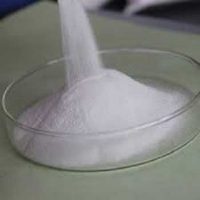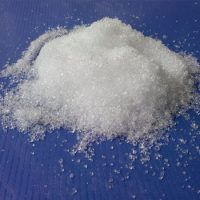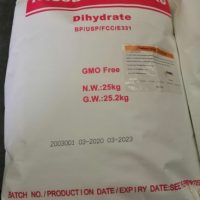Aspartame
- CAS Number: 22839-47-0
- Appearance: Solid
- Purity:%
- Made in: China
- Phone Num : +86-2150591759
- E-mail: info@shanghaimetex.com
- Description
- analysis
- shipping and delivery
- Product Specification
Description
Aspartame is a methyl ester of the aspartic acid dipeptide, phenylalanine under the brands NutraSweet, Equal, and Canderel. Aspartame was first developed in 1965 and approved by the US Food and Drug Administration (FDA) in 1981 for use in food grade.

Aspartame is one of the hardest foods tested. Studies by more than 100 government regulators have found the substance safe for use at current levels. Since 2018, several clinical trials have shown that using aspartame instead of sugar reduces calorie intake and body weight in adults and children.
Physical and Chemical Properties:
Aspartame is a synthetic non-saccharide sweetener 200 times sweeter than sucrose and is commonly used as a sugar substitute in foods and beverages.
The amount of energy in aspartame per gram is about 4 kcal (equivalent to 17 kJ) and because it is used in very small amounts (about a few milligrams per liter of product), the number of calories in the drink Are considered almost zero.
Another feature is its pleasant taste. Some artificial saccharin sweeteners leave a bitter and bad taste after consumption, but this sweetener does not have such a problem, and one of the reasons for selling aspartame more than other artificial sweeteners, This is its pleasant taste.
The most important physical and chemical properties of aspartame can be summarized in the following table:
| Chemical formula | C14H18N2O5 |
| Molecular Weight(g/mol) | 294.307 |
| Appearance | Solid |
| odor | Odorless |
| Taste | sweet taste |
| Density (g/cm3) | 1.347 |
| pH (0.8% aqueous solution) | Between 4,5 and 6,0 |
| Melting point (° C) | 246–247 (475–477 °F; 519–520 K) |
| Boiling point (°C) | Decomposes |
| Water Solubility | Sparingly soluble |
| Other names | Slightly soluble in ethanol, alcohol, chloroform; practically insoluble in oils. |
| color | White |
| form | crystalline powder |
| Chemical Structure Depiction |  |
Similar product: Ascorbic Acid
Production Process of Aspartame:
Its production is a relatively complex process in which aspartic acid and phenylalanine methyl ester are produced in a complex process along with a number of microorganisms. Chemical synthesis of aspartame involves two basic steps in chemical synthesis called processes are known as Z and F.

Applications and Uses of Aspartame:
The main use of aspartame is in the production of food products, especially beverages and foods used by athletes, This material is not very resistant to heat, so it is not recommended for use in confectionery and cooking methods that require heat, but there is no harm in using it, in which case the flavor will be broken and the sweetness of the final product will be reduced. This product is commonly used in a variety of ready-made foods and beverages that do not require heat to prepare.
Many foods and beverages labeled (sugar-free) may contain some kind of artificial sweetener. The following products will probably contain aspartame:
-Diet drinks
-Chewing gum
-Sugar-free candy
-Cereals
-Sugar-free ice cream
-Dairy products (flavored low-fat milk, light yogurt, etc.)
-Canned fruits
-Low-calorie fruit juice

Drug manufacturers also use aspartame to make certain drugs. Examples of these medications include laxatives and chewable vitamin supplements.
Side Effects of Aspartame:
Since 1980, the US Department of Health and Human Services has received more than 10,000 complaints about adverse reactions to aspartame.
Some of the most common side effects of aspartame are:
-Nervous complications: Convulsions, headaches, migraines, severe dizziness, tremors, memory loss, drowsiness, numbness of the hands and feet, impaired speech, hyperactivity, severe leg fatigue, facial pain, tremors, attention deficit disorder, and brain tumors.
-Eye and ear complications: Blindness, decreased vision and blurred vision, lightning in the eyes, decreased night vision, pain in the eyes, protruding eyes, ringing or whistling sounds in the ears, hearing loss.
-Psychological complications: Depression, sensitivity and irritability, aggression, anxiety, personality changes, insomnia, phobia.
-Cardiac complications: Increased heart rate, shortness of breath, increased blood pressure.
-Gastrointestinal complications: Nausea, diarrhea, abdominal pain.
-Allergic complications: Breathing with sound, asthma, itching, and skin rash.
Examining the different properties of aspartame, it can be concluded that if you take it in moderation, you can prevent its harm to some extent.

Aspartame and Diabetes:
When the name diabetes is mentioned, the first thing that comes to mind for the diet of these patients is the elimination of pure calories. This often refers to sugar. Artificial sweeteners have received special attention in the diet of these patients due to their low-calorie content. Foods and beverages containing this sweetener are safe for diabetics. Products containing this substance create a good and sweet taste while being low in carbohydrates. This is beneficial for people with diabetes who need to control their carbohydrate intake.
People with diabetes should consult a specialist to include foods and beverages containing low-calorie sweeteners such as aspartame in their diet.
Packing and Storage:
Keep containers tightly closed in a dry, cool, and well-ventilated place. To maintain product quality: Keep refrigerated.
analysis
shipping and delivery
PRODUCT DESCRIPTION: Aspartame (APM) is an artificial non-saccharide sweetener used as a sugar substitute in some foods and beverages. It is a methyl ester of the aspartic acid/phenylalanine dipeptide.
Product Name: Aspartame
CAS Number: 22839-47-0
E Number: E951
Product Specification











